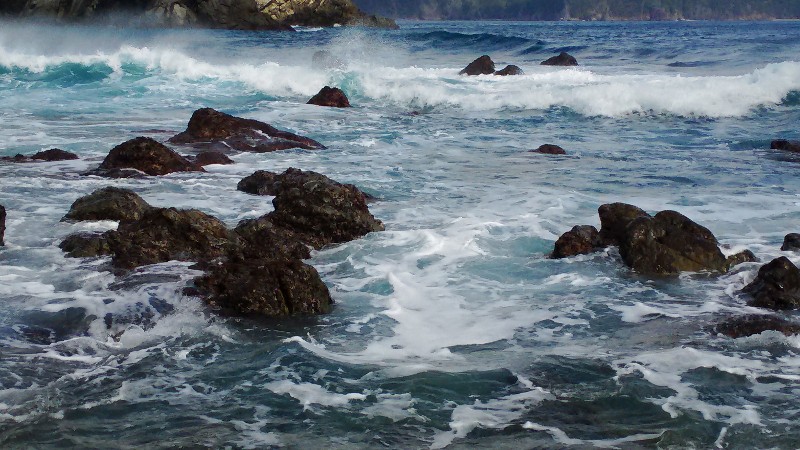「攘夷」というか悪にまみれた世界から隔絶した社会の中で暮らせたらという思いはあります。幕末から明治に生きた人はそう思っていたのでは。鎖国は北朝鮮やキューバのように経済的困窮を齎しますが魅力はあります。現実的には無理ですが。ペリー来航以来の百年を米国との「百年戦争」と林房雄は捉え『大東亜戦争肯定論』に書いております。外国人が入ってくるのを嫌うわけでなく、彼らの価値観をゴリ押しされるのが堪らないためです。Cultural imperialism です。「入郷随俗」できなければ来てもらう必要はありません。
大東亜戦争も昨日のルトワックのいうように勝ち目はありませんでした。ここにあるようにそうそう神風が吹くことはありません。猪瀬直樹の『昭和16年夏の敗戦』に陸軍は識者に戦争になった場合の結果を調査させ、「敗戦」となったのを握りつぶしました。国力が余りに違いすぎるからです。日本は戦争途中で講和をと考えていたようですが、日露戦争の時のアメリカの役割を演じてくれる国はありませんでした。あまつさえ参戦してくるロシアに仲介を頼もうと考えていました。国際情勢に疎いままで戦争に入ることほど愚かなことはありません。ABCD包囲網を敷かれた段階でアウトです。大戦略で同盟関係を作って戦う方が有利でした。せめて昭和天皇の「開戦の詔勅」
http://www.geocities.jp/taizoota/Essay/gyokuon/kaisenn.htm を主要な外国語に翻訳して世界に流していれば、戦後アメリカ、GHQの検閲での日本国民への洗脳工作や侵略戦争の汚名をきせられることもなかったのではと思います。
内容
To Japan the armed embassy of the United States of America in 1853 seemed a dread image of that White Disaster whose advent had proved so fatal to other Eastern countries. Eleven years before that event the Opium War in China had exposed the unscrupulous nature of Western aggression. The Dutch, who kept us informed of the European encroachment on Asia, did not hesitate to enhance the value of their friendship by painting the deeds of other Western nations in the darkest colors. In fact, unfortunately, we had already had some experience of foreign rapacity in the Russian advance from the north.
It is a curious coincidence that the first European nation—and let us hope it may be the last—whom we have met in battle array is the power whose acts first warned us of the possibility of foreign complications. Russia, sweeping down from Siberia and Kamchatka, long ago laid her hands upon our territory of Sakhalin and the Kurile Islands. In the end of the eighteenth century the Russians committed ravages in Yezo itself, and in 1806 the Tokugawas had to place a military governor in Hakodate to guard against their further depredations. Alarming stories of Northern encroachments were poured into our excited ears, and many daimios offered by themselves to chase back the intruders. In 1830 Nariaki of Mito, a powerful prince of the Tokugawa family, proposed to settle in Yezo with all his retainers and the entire population of his daimiate. He melted all the bronze bells of the temples in his territory, casting a number of immense cannon, and drilled his samurai in preparation for an emergency. His zeal was, however, misconstrued by the Tokugawa government and he was obliged to abdicate in favor of his son and remain in retirement. Russophobes were imprisoned for spreading false alarms, and many died in confinement. It is interesting to find among some of their memoirs prophecies of Russian aggrandizement in Asia which have been but too truly fulfilled.
The appearance of American warships in the bay of Yedo was a mighty shock. Hitherto the alarms of foreign attack had meant but little to the country at large, for it was a long cry to Hakodate or Nagasaki; but now within a day’s march of the city of Yedo lay the black hulks of a formidable fleet whose admiral refused to retire until a treaty was signed. Recollection of the Tartar armada flashed through the minds of our grandfathers. Was the samurai to be intimidated in his own waters? Was not the divine land always prepared to repel an invasion? What right had a foreign nation to impose a commerce which we did not want, a friendship which we did not ask? To arms! Jhoi! Jhoi! Away with the barbarians! The alarm-bells clanged throughout the country. Foam-covered riders rushed through every castle gate, spreading the momentous news. Spears were torn from their racks and ancient armor was eagerly dragged from dust- covered caskets. Night and day could be heard the clanging of steel on anvils forging the accoutrements of war. The old prince of Mito was summoned from his hermitage to take command, and his cannon lined the principal points of defence. Buddhists wore away their rosaries invoking Kartikiya, the war-god, and Shinto priests fasted while they called on the sea and the tempest to destroy the invader.
The historic spirit that had been smoldering in our national consciousness only waited for this moment to burst forth in a fiery expression of unity. Custom and formalism were alike forgotten in this hour of common danger, and for the first time in two hundred years the daimios were asked by the Tokugawa government to deliberate over a matter of state. For the first time in seven centuries the Shogun sent a special envoy to the Mikado to consult about the policy of the empire, and for the first time in the history of our nation, the high and the low alike were invited to offer suggestions as to what steps should be taken for the protection of the ancestral land. We became one, and the Night of Asia fled forever before the rays of the Rising Sun.
日本にとっては、一八五三年のアメリカ合衆国の武装使節は、東方諸国にすでにかずかずの災厄をもたらしていた白禍のおそるべき姿と映った。それより十一年前には、中国の阿片戦争が、西洋の侵略の傍若無人ぶりを暴露していた。ヨーロツバのアジア侵食を日本に知らせていたオランダは、ただちに他の西洋諸国の行動についての情報を日本につたえ、その友情のほどを強調したのであった。不幸にして日本は、すでにロシアの北辺進出によって、外国の侵略性について多少の経験をもっていた。
奇妙な一致であるが、われわれが最初に—そしてこれが最後であってもらいたいのだが—戦場にまみえたヨーロツバの国は、その行動によって対外紛争の可能性をわれわれに最初に予告した国であった。シベリアとカムチヤツカから南下したロシアは、かなりまえから、わが領土である樺太、千島列島に手をつけていた。十八世紀末には、ロシア人は、蝦夷地にまできて乱暴をはたらき、徳川幕府は一八〇六年、函館に奉行をおいて彼らの略奪の警戒にあたらせねばならなかった。北方侵略の警報は、日本人を興奮させ、多くの大名が進んで外敵撃退の任にあたることを申し出た。
一八三○年には、徳川一門の有力な大名、水戸の斉昭が、全部の家臣と領民をつれて、蝦夷地へ移り住むことを申し出た。彼は、領内の寺院の鐘をとかして大砲をつくり、一朝事ある場合にそなえて家臣の練兵をおこなった。しかしながら、彼の熱心さは徳川幕府の誤解をまねき、斉昭は、領主の地位を息子にゆずって隠居せねばならなくなった。恐露主義者たちは、虚報をひろめたかどで投獄され、獄死したものも少なくなかった。彼らの手記のうちには、アジアにおけるロシアの拡張を予見したものも見いだされるが、それがあまりにも的確に的中したことは興味深い。
アメリカの軍艦が江戸湾にあらわれたことは、大きな衝撃であった。これまでは、外敵来襲の警報があげられたといっても、遠い函館や長崎のことであり、一般国民にとっては直接的なひびきをもたなかった。ところが今は、江戸からわずか一日でゆけるところに、おそるべき黒船の艦隊があらわれて、条約をむすぶまでは帰らないとがんばっているのだ。モンゴルの艦隊の記憶が、祖父たちの心にひらめいた。サムライが自国の水域でおどかされて、引きさがっておれるであろうか?神州はつねに外敵の侵入を擎退する用意をととのえていたのではなかったか?いったい外国に何の権利があって、望みもしない通商、たのみもしない友好をおしつけるのか?武器をとれ!攘夷!攘夷!夷狄をおいはらえ!
警鐘が、国中に鳴りひびいた。汗にまみれた騎馬のサムライが、城門という城門から駆け出してきて、一大事をつたえた。槍は槍かけから引きおろされ、先祖伝来の鎧が鎧櫃からとり出された。昼夜を分かたず、鉄敷の上で武具をきたえる音が聞こえた。水戸の老侯が隠居の身から呼びもどされて、指揮をとり、彼のつくらせた大砲が国防の要所にならべられ た。僧侶は、軍神カーテイキヤ〔インドの戦いの神。仏教では大元帥〕の加護を祈って数珠をすりへらし、神官は、海と暴風が侵略者を滅ぼすことを祈って断食した。
わが民族意識のうちにくすぶっていた歴史的精神は、今やその時をえて、焔のように燃えあがった。慣習や形式主義は、共通の危機のまえに忘れられ、幕府は二百年来はじめて諸大名に国事をはかった。七百年来はじめて将軍は、国の政策を相談するために特使をミカドに送り、有史以来はじめて一般人民は、先祖伝来のこの国をまもるための意見を問われた。日本人は一体となり、アジアの夜は、さしのぼる朝日のまえに、永遠に消えうせたのであった。
